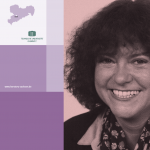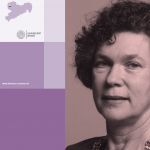In the early-20th century, women were finally permitted to take university degrees and doctorates. Even so, it wasn’t until 1920 that they were granted the right by the Weimar Constitution to also take the habilitation, giving them access to a professorship. Even then, only few did so as the prospects for women in academia appeared too uncertain. By 1933, there were only 53 postdoctoral students throughout Germany, including two at Leipzig University. With the appointment committees made up solely of men, only 24 women with the habilitation managed to make the leap to a professorship. However, the situation began to change in 1939. Previously ousted out of academia by the Nazis, women now became increasingly involved in higher-education teaching because of the shortage of male lecturers, many of whom had been conscripted. The dearth of male lecturers at many Saxon universities and colleges continued after the war, giving some women a chance to gain a foothold. They included Dr Ingrid von Reyher (1908–2004), who in 1945 became the first female lecturer at Mittweida School of Engineering (now Mittweida University of Applied Sciences), and Dr Ingeborg Esenwein-Rothe, an economist and from 1947 the first female lecturer at Chemnitz Technical Academy. Then again, despite having the habilitation, many female lecturers in both East and West Germany remained stuck in mid-level positions with professorships nearly always being awarded to male candidates. In East Germany, although endeavours to promote women also included the academic field, the ruling party still had sway over the appointment of professors. Since the 1990s, the proportion of women in teaching and research has grown steadily. Through national initiatives such as the Female Professor Programme launched in 2008, Germany’s Ministry of Education and Research has attempted to raise the share of female professors.
Renate Lieckfeldt 1965–2013 “Higher education means passion!” declared Renate Lieckfeldt ardently at the start…
Ausstellungseröffnung #herstory – Sachsen und seine Akademikerinnen Im Tietz der Stadt…
Marketing researcher and first woman at the helm of a university Cornelia Zanger Cornelia Zanger…
Physician and first female rector Beate A. Schücking After a long career in…






